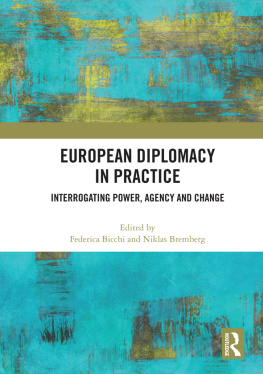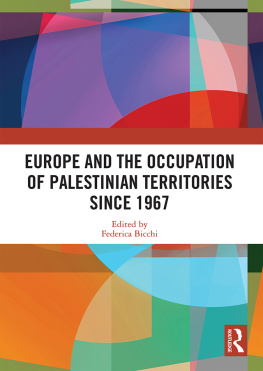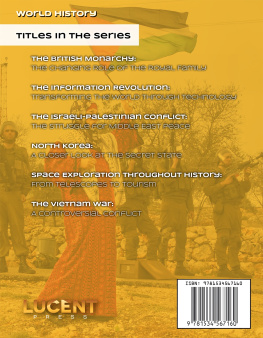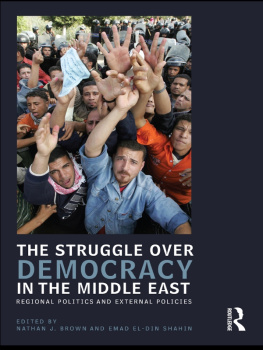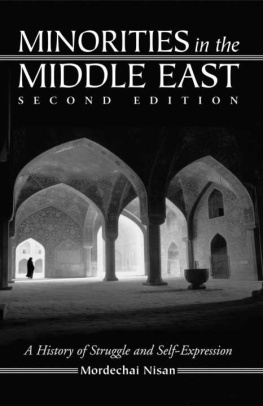The Struggle for Influence in the
Middle East
This collection of research papers explores the impact of the Arab uprisings on the politics and political economy of foreign aid provision in the MENA region. Contributions focus on the foreign assistance policies and strategies of key donors (United States, Europe, Gulf countries and Turkey), and on the relationship between donors and recipients of foreign aid in a select set of MENA cases (Tunisia, Egypt, Palestine and to a lesser extent Morocco).
Despite widespread rhetoric among lead donors pledging to support the transformational potential of the Arab uprisings, the contributions find a more complex pattern in foreign aid provision since 2011. Among Arab donors, who have played a significant role as providers of aid to states most affected by mass protests, trends in foreign assistance reflect the competing priorities of donors, and their willingness to politicize aid provision in pursuit of their strategic interests. Among Western donors, authors find a high degree of continuity. Chapters that focus on Western donors seek to account for continuity on the part of Western governments and the EU at a moment of profound transformational potential. Two factors, bureaucratization and securitization, capture most of the explanations provided, which take into account a variety of local dimensions as well. Contributions also discuss the changing assistance environment, namely the globalization of foreign assistance, the complex bureaucratic arrangements presiding over the delivery of European and US aid, and the role of regional and international non-democracies in the provision of foreign assistance.
This book was published as a special issue of Mediterranean Politics.
Federica Bicchi is Associate Professor at the Department of International Relations, London School of Economics, UK.
Benoit Challand is Associate Professor at the New School for Social Research, New York, USA
Steven Heydemann is Janet W. Ketcham 1953 Professor of Middle East Studies at Smith College, Northampton (MA), USA
The Struggle for Influence in the Middle East
The Arab Uprisings and Foreign Assistance
Edited by
Federica Bicchi, Benoit Challand and
Steven Heydemann
First published 2016
by Routledge
2 Park Square, Milton Park, Abingdon, Oxon, OX14 4RN, UK
and by Routledge
711 Third Avenue, New York, NY 10017, USA
Routledge is an imprint of the Taylor & Francis Group, an informa business
2016 Taylor & Francis
All rights reserved. No part of this book may be reprinted or reproduced or utilised in any form or by any electronic, mechanical, or other means, now known or hereafter invented, including photocopying and recording, or in any information storage or retrieval system, without permission in writing from the publishers.
Trademark notice: Product or corporate names may be trademarks or registered trademarks, and are used only for identification and explanation without intent to infringe.
British Library Cataloguing in Publication Data
A catalogue record for this book is available from the British Library
ISBN 13: 978-1-138-93724-6
Typeset in Times New Roman
by RefineCatch Limited, Bungay, Suffolk
Publishers Note
The publisher accepts responsibility for any inconsistencies that may have arisen during the conversion of this book from journal articles to book chapters, namely the possible inclusion of journal terminology.
Disclaimer
Every effort has been made to contact copyright holders for their permission to reprint material in this book. The publishers would be grateful to hear from any copyright holder who is not here acknowledged and will undertake to rectify any errors or omissions in future editions of this book.
Contents
Benoit Challand
Steven Heydemann
Federica Bicchi
Meliha Benli Altunisik
Leila Mouhib
Moncef Kartas
Khaled Amin
Sally Khalifa Isaac
Jeremy Wildeman and Alaa Tartir
Steven Heydemann
The chapters in this book were originally published in Mediterranean Politics, volume 19, issue 3 (November 2014). When citing this material, please use the original page numbering for each article, as follows:
Chapter 1
Revisiting Aid in the Arab Middle East
Benoit Challand
Mediterranean Politics, volume 19, issue 3 (November 2014), pp. 281298
Chapter 2
Americas Response to the Arab Uprisings: US Foreign Assistance in an Era of Ambivalence
Steven Heydemann
Mediterranean Politics, volume 19, issue 3 (November 2014), pp. 299317
Chapter 3
The Politics of Foreign Aid and the European Neighbourhood Policy Post-Arab Spring: More for More or Less of the Same?
Federica Bicchi
Mediterranean Politics, volume 19, issue 3 (November 2014), pp. 318332
Chapter 4
Turkey as an Emerging Donor and the Arab Uprisings
Meliha Benli Altunisik
Mediterranean Politics, volume 19, issue 3 (November 2014), pp. 333350
Chapter 5
EU Democracy Promotion in Tunisia and Morocco: Between Contextual Changes and Structural Continuity
Leila Mouhib
Mediterranean Politics, volume 19, issue 3 (November 2014), pp. 351372
Chapter 6
Foreign Aid and Security Sector Reform in Tunisia: Resistance and Autonomy of the Security Forces
Moncef Kartas
Mediterranean Politics, volume 19, issue 3 (November 2014), pp. 373391
Chapter 7
International Assistance to Egypt after the 2011 and 2013 Uprisings: More Politics and Less Development
Khaled Amin
Mediterranean Politics, volume 19, issue 3 (November 2014), pp. 392412
Chapter 8
Explaining the Patterns of the Gulf Monarchies Assistance after the Arab Uprisings Sally
Khalifa Isaac
Mediterranean Politics, volume 19, issue 3 (November 2014), pp. 413430
Chapter 9
Unwilling to Change, Determined to Fail: Donor Aid in Occupied Palestine in the aftermath of the Arab Uprisings
Jeremy Wildeman and Alaa Tartir
Mediterranean Politics, volume 19, issue 3 (November 2014), pp. 431449
Chapter 10
Conclusion: Continuities and Discontinuities in Foreign Assistance
Steven Heydemann
Mediterranean Politics, volume 19, issue 3 (November 2014), pp. 450455
For any permission-related enquiries please visit: http://www.tandfonline.com/page/help/permissions
BENOIT CHALLAND
New School for Social Research, Sociology Dept, New York NY
New Models of Aid after 2011?
Since the fall of four Arab dictators in 2011, the issue of foreign aid has emerged occasionally as a focal point, but these discussions have tended just to scratch the surface of the issues at stake. Even a mediocrely informed student of the Middle East knows that the USA grants $1.3bn of military aid to Egypt annually. The partial suspension of this aid after the ousting of Egyptian President Morsi in July 2013 was evoked as a sign that some donors have changed their policies and adapted them to the environment generated by the Arab uprisings. Yet the USA resumed funding at the end of the same year. Other conflicting declarations came from other external actors, the EU and Gulf countries in particular, promising to shoulder the demands for social change in 2011 but backtracking at a later stage and giving less funding than initially promised. Despite widespread rhetoric among lead donors pledging to support the transformational potential of the Arab uprisings, what has been the story here? In particular, what can we learn from a detailed and comparative analysis of the flows of foreign aid across and around the Mediterranean since the beginning of the Arab uprisings?



